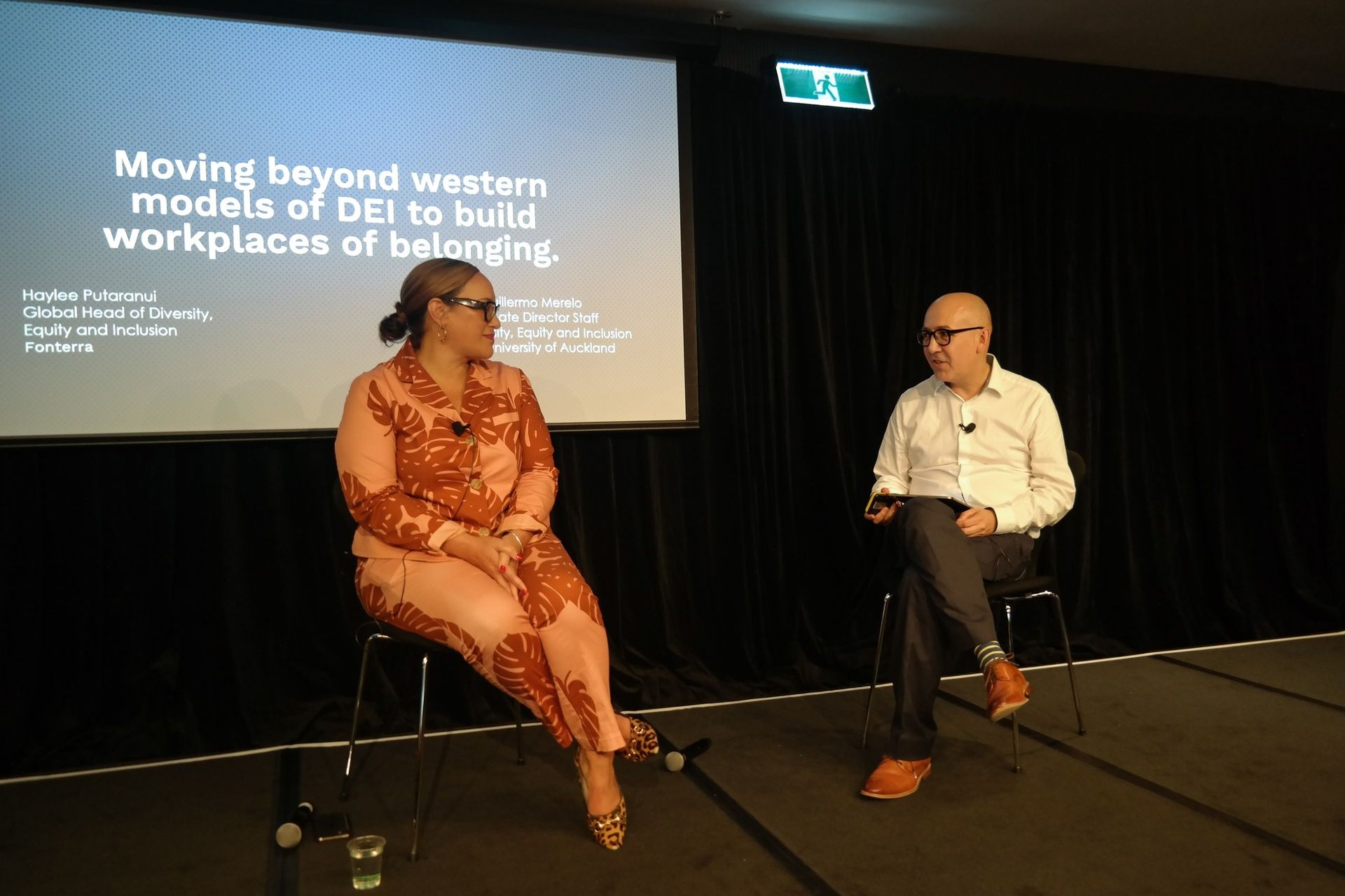How Workplace Inclusion Strengthens Social Cohesion
How Workplace Inclusion Strengthens Social Cohesion
The Culture and Design Lab team recently had the privilege of attending the Workplace Inclusion Aotearoa 2023 conference in Auckland. The highlight was networking with a few hundred DEI (diversity, equity and inclusion) professionals, the majority of whom were Pākehā women.
These are passionate individuals and experts who had earnest talanoa about fostering workplace inclusion and combating discrimination in Aotearoa New Zealand.
As a learning, design and strategy business, the conference gave us valuable insights into their ongoing journey towards social cohesion while recognising Te Tiriti o Waitangi as a blueprint for unity in the country.
Social Cohesion in the Workplace
Molly Elliott from the Ministry of Social Development (MSD) did a great presentation which reinforced this very point. Social cohesion, as defined by the Royal Commission of Inquiry, is a society in which everyone has a sense of belonging, inclusion, participation, recognition, and legitimacy. Molly encouraged everyone to reflect on what social cohesion meant to them and how New Zealand would change if it were improved.
Social cohesion, as defined by the Royal Commission of Inquiry, is a society in which everyone has a sense of belonging, inclusion, participation, recognition, and legitimacy.
Key areas identified for strengthening social cohesion included addressing inequality, combating discrimination and prejudice, allocating more resources to community groups, countering the spread of misinformation through social media, and recognising the challenges of intersectionality. The tension between fostering common values and celebrating diversity was also explored as an important aspect of social cohesion.
Dismantling Systemic Racism
Dr Virginia Mapedzahama, from the Diversity Council Australia, was another dynamic speaker who spoke about the distinction between cultural diversity and racism. Race, she says, is not the subject of polite conversation in Australia, and there are various forms of racism, from interpersonal to systemic. Dr Mapedzahama says it’s important that organisations “take anti-racist actions” to dismantle systemic racism, rather than being “non-racist and remaining passive” in the face of racial injustice. Right up our alley, she also highlighted the significance of conducting race audits on policies and procedures within organisations (The Culture and Design Lab conducts cultural audits).
Dr Mapedzahama says it’s important that organisations “take anti-racist actions” to dismantle systemic racism, rather than being “non-racist and remaining passive” in the face of racial injustice.
The panel discussions during the conference delved into the challenges of discussing racism and the need to provide tools and support for leaders of diverse teams. The importance of ongoing training, performance measurements, and clear expectations for leaders in addressing racism was underscored. It was interesting listening to Stephanie Weller from the Ministry of Business, Innovation, and Employment (MBIE) sharing their journey in increasing tikanga and cultural capability within its workforce.
The Role of Allyships
The conference also addressed the role of allyship in combatting racism and promoting equity. Allyship involves listening to the experiences of marginalised groups, following their leadership, and actively working towards systemic change. Speakers emphasised the need for majority groups to explore their own identity, privilege, and power to become effective allies.
Allyship involves listening to the experiences of marginalised groups, following their leadership, and actively working towards systemic change. Speakers emphasised the need for majority groups to explore their own identity, privilege, and power to become effective allies.
Joe Consedine's (Director, Champions for Change and Global Women Advocacy) presentation highlighted the importance of unlearning preconceived notions, active listening, and story stewardship as key components of allyship. The idea that power, when combined with love and justice, can create lasting positive change.
Moving Beyond Western Models

Adding to the kōrero were Dr Guillermo Merelo (University of Auckland) and Haylee Putaranui (Fonterra) - both pictured above - who challenged the conventional Western models of Diversity, Equity, and Inclusion (DEI) in the workplace. Both are compelling speakers who emphasised the need to move beyond Western models and instead focus on building workplaces of true belonging.
This means acknowledging the value of demographic richness, which can lead to positive social license, enhanced collaboration, and societal outreach. Conversely, DEI as a neo-colonial invention, is often used as a corporate tool, representing a soft approach to social justice without real contextual understanding.
Conversely, DEI as a neo-colonial invention, is often used as a corporate tool, representing a soft approach to social justice without real contextual understanding.
Dr Guillermo and Hayley stressed the importance of creating a business model that transcends mere "washing" and instead aims to provide an inclusion dividend. They challenged the notion of bringing one's "best self" to work, recognising the diverse identities and realities that individuals bring to the workplace. In essence, they echoed George Dei's idea that “inclusion is about making a new and better space for everyone” and Audrey Lorde's belief that “using the master's tools will never truly dismantle the master's house”.
Our big takeaway is that building social cohesion is an ongoing journey that requires commitment and action from all sectors of society. By taking deliberate and purposeful steps, Aotearoa New Zealand can continue to progress towards a more inclusive and equitable future for all its residents.
The Culture and Design Lab empowers workplace leaders to create social cohesion at work. We use indigenous knowledge, design, and strategy to foster inclusion and belonging in the workplace.
